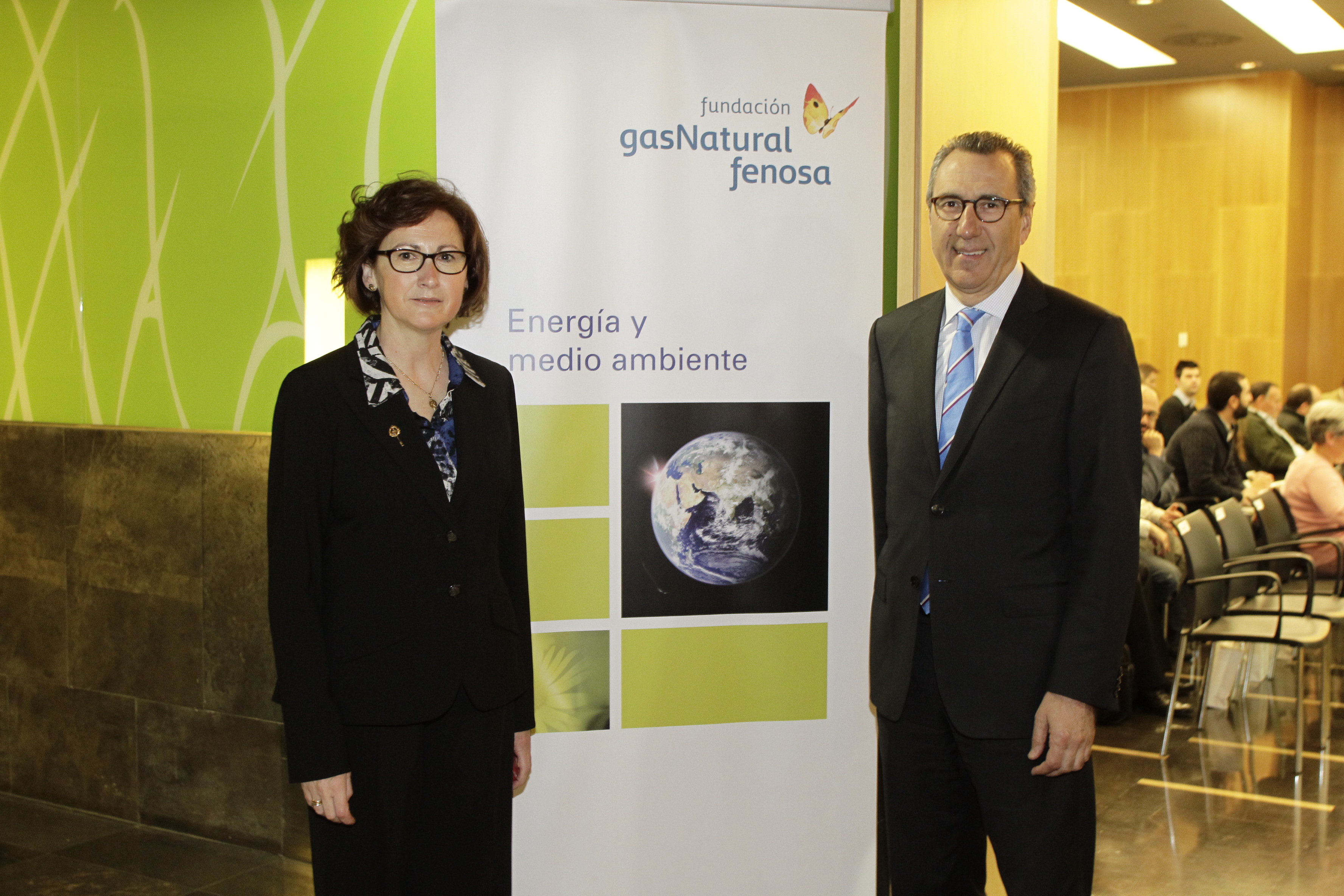Aragon saves 81 million euros a year and avoids emitting one million tonnes of co2 thanks to the use of cogeneration
In a seminar organised today in Zaragoza by the Gas Natural Fenosa Foundation in collaboration with the Government of Aragon, several experts analysed the technological, economical and environmental benefits of using cogeneration.
In Aragon there are 525 MW of cogeneration installed, allowing it to now save 1.500 GWh of energy each year, equivalent to annual savings of 81 million euros and one million tonnes of CO2.

Director General of Environmental Quality for the Government of Aragon Pilar Molinero and Director General of the Gas Natural Fenosa Foundation Martí Solà opened the Efficient cogeneration and emissions reduction seminar in Zaragoza today, during which several experts analysed the technological, economic and environmental benefits of using cogeneration.
The seminar, which was adjourned by Director General of Energy and Mines of the Government of Aragon Marina Sevilla, was attended by more than 120 professionals from companies, engineering firms, universities and public administrations, all working in energy efficiency and the environment.
In Aragon there are 525 MW of cogeneration installed, allowing it to now save 1.500 GWh of energy each year, equivalent to annual savings of 81 million euros. Moreover, thanks to the use of this technology, the region has avoided emitting more than one million tonnes of CO2, the main cause of climate change.
The seminar analysed the regulatory status of cogeneration and provided detailed information on the operations of cogeneration facilities and Aragon's various experiences to date with this technology. According to Aragon's Energy Bulletin, cogeneration accounted for approximately 25% of the electricity generated in Aragon in 2013, thanks to 25 facilities in Zaragoza province, 18 in Huesca province and four in Teruel province.
Professor of Thermal Machines and Engines from the Mechanical Engineering Department of the University of Zaragoza Miguel Ángel Lozano stated at the seminar that support for cogeneration systems should be based on three premises: this could result in a reduction of up to 20% in primary energy consumption and CO2 emissions, stimulate the development of the internal market for capital goods, and help improve the management of the national electricity system by flattening the demand curve.
Meanwhile, Head of the Climate Change and Environmental Education Service at the Department of Agriculture, Livestock and the Environment Matilde Cabrera reported that greenhouse gas emissions in Aragon for 2012 (the year of publication of the most recent emissions inventory) reached 17.5 million tonnes of CO2.
Grupo Saica Energy Director José Ignacio Castillo noted that his company has been implementing cogeneration as the most efficient system of generating thermal and electrical energy, and that to date it has over 220 MV of cogeneration facilities. He also expressed his concern with the gradual closures occurring among Spanish cogeneration facilities due to current legislation.
Meanwhile, Tereos-Syral Director of Engineering and Maintenance Pedro Braña explained that Syral Iberia's cogeneration plant has 90% efficiency, with primary energy savings of up to 35% and NOx emissions reductions of more than 80%. However, he stated that recent legal reforms and ongoing regulatory uncertainty hinder the company's industrial competitiveness.
Gas Natural Fenosa Renovables Head of Operations, Cogeneration and Biomass Francisco López Martín explained the importance of cogeneration technology in simultaneous electricity and thermal-energy production processes, giving examples of cogeneration installations in the service and industrial sectors with excellent economic and environmental results.
Finally, Deputy Director General of Coordinating Climate Change Actions for the Spanish Climate Change Office (OECC) Eduardo González stated that cogeneration could effectively contribute to mitigating greenhouse gases.
The Gas Natural Fenosa Foundation
The Gas Natural Fenosa Foundation, founded in 1992, targets its activity at the promotion of information, training and increased social awareness on improving energy efficiency and technological innovation in the field of energy while respecting and protecting the environment, and promotes cultural activities through the Gas Museum aimed at preserving and spreading knowledge about the historical and cultural heritage of the sector. It also runs an export assistance programme for small and medium-sized companies. Its international activities are carried out in Algeria, Argentina, Brazil, Colombia, Costa Rica, Mexico, Morocco, Italy and Moldova.
Zaragoza (Spain), 15 Apr 2015
Share